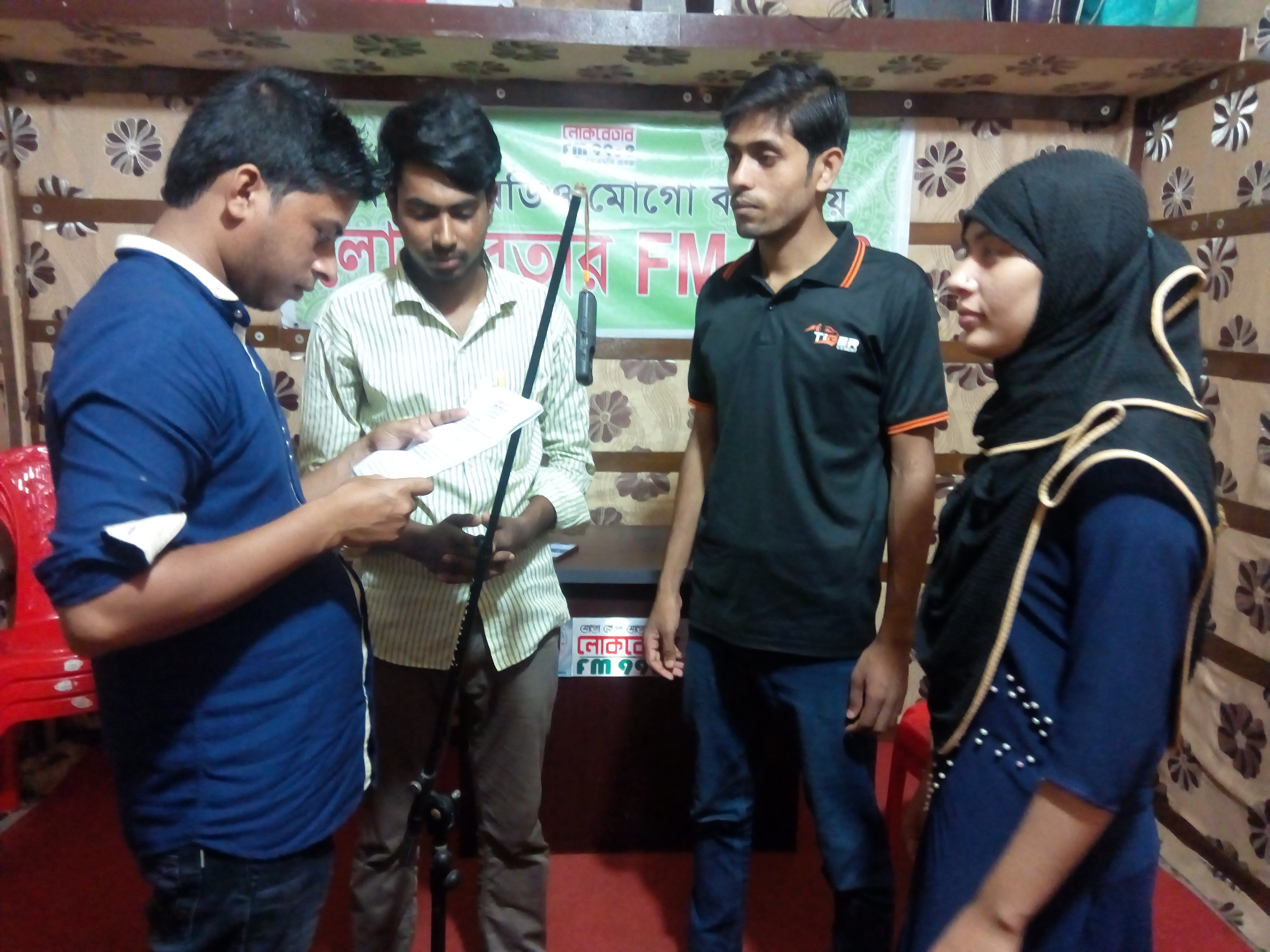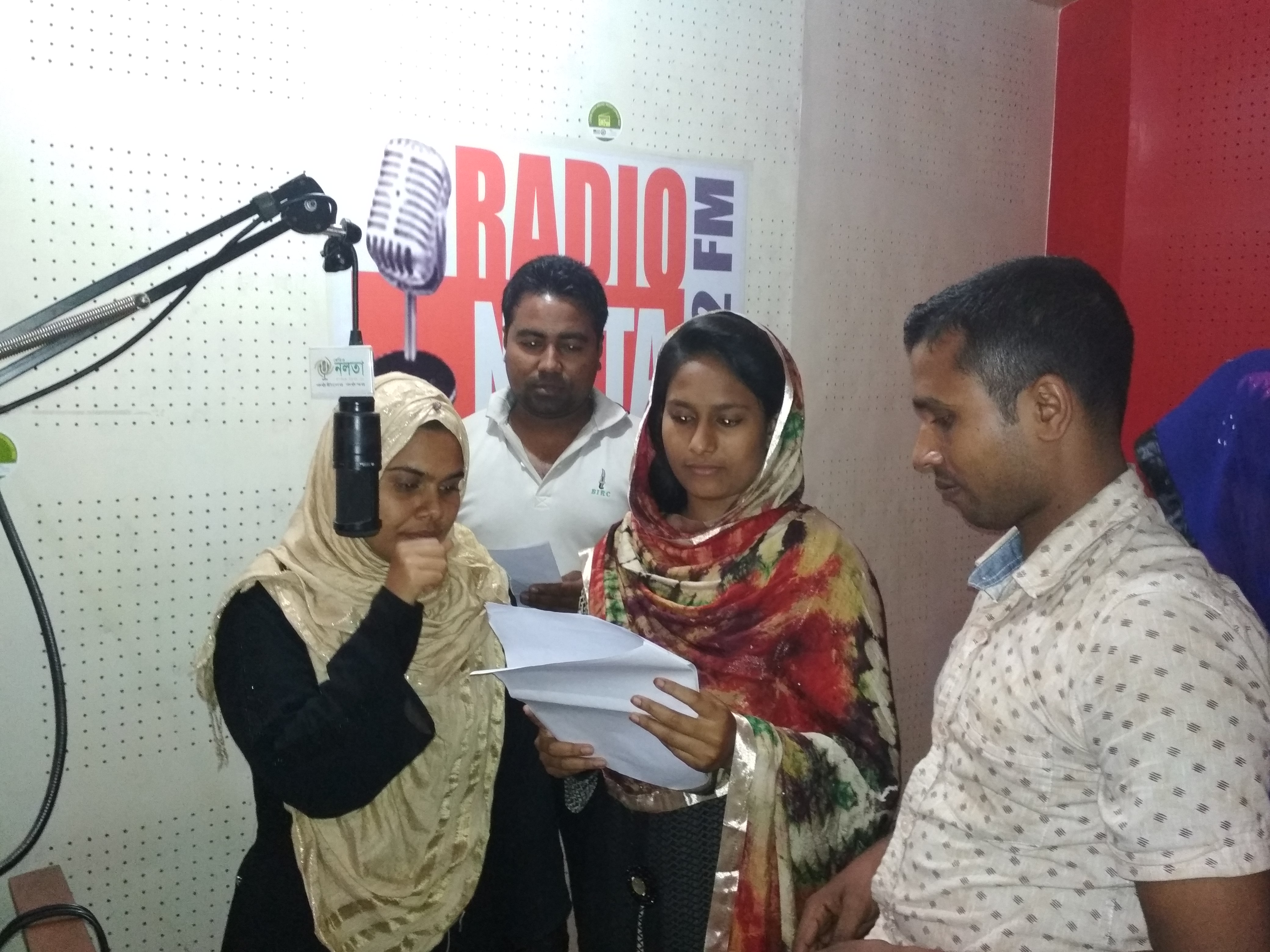Hijras are socially excluded, living on the fringes of society, harassed by the police and abused by the public. Though most of them are involved in singing and dancing at wedding or child birth as a part of their traditional Badhai culture but few of them are in begging and sex trade.
Violence against hijra, especially hijra sex workers, is often brutal, and occurs, in public spaces and their homes. They face extreme discrimination in health, housing, education, employment, immigration, law and any bureaucracy that is unable to place them into male or female gender categories.
 A landmark decision has already been made by the government of Bangladesh acknowledging the hijra as third gender on 11th November 2013, This recognition will secure their rights, enabling them to identify their gender as “hijra” in all government documents, including passport apart from allowing them to identify their gender as “hijra” when personal information needs to be furnished. After a year of the government announcement, the third gender community is still waiting for a specific law to be enacted to cover their rights.
A landmark decision has already been made by the government of Bangladesh acknowledging the hijra as third gender on 11th November 2013, This recognition will secure their rights, enabling them to identify their gender as “hijra” in all government documents, including passport apart from allowing them to identify their gender as “hijra” when personal information needs to be furnished. After a year of the government announcement, the third gender community is still waiting for a specific law to be enacted to cover their rights.
The problem is, despite the air of positivity seen in academic and policy circles in recent years, transgender people remain one of the most marginalized and misunderstood communities in Bangladesh. The public perception of this community is rudimentary at best, and dangerously misleading at worst. This, some may say, is to be expected given the country’s rigid social structure and lack of openness about gender diversity, where any attempt to establish the “humanness” of transgender people is still viewed as radical. Globally, the picture is not so rosy either.
According to an estimate by the Department of Social Services, there are nearly 11,000 individuals belonging to the community, but Hijra activists believe the actual number is much higher. A small group of activists campaigning for transgender rights, including social and economic justice and appropriate psychological care, thinks that this approach and its resultant effects prove that the root of the problem lies in the lack of basic knowledge on sexual orientation and gender identity in our society.
 It is, then, unsurprising that the granting of a legal status has hardly changed the condition of the transgender people in our society. They continue to endure transphobic slurs and attacks, they are cast away by their own family, they are deprived of their inheritance since the inheritance law only recognizes males and females, and are not considered for jobs or other rights and services taken for granted by most men and women. Although the community has been increasingly vocal about their rights in recent years, most of them are still forced to choose professions that are generally frowned upon.
It is, then, unsurprising that the granting of a legal status has hardly changed the condition of the transgender people in our society. They continue to endure transphobic slurs and attacks, they are cast away by their own family, they are deprived of their inheritance since the inheritance law only recognizes males and females, and are not considered for jobs or other rights and services taken for granted by most men and women. Although the community has been increasingly vocal about their rights in recent years, most of them are still forced to choose professions that are generally frowned upon.
In the 2018 national election, the Hijras failed to vote as Hijras because they were not recognized as such in the ballot papers. Clearly, the formal recognition by the state minus supporting laws and directives covering all aspects of their life didn’t amount to a fuller recognition of their constitutionally guaranteed rights as citizens of this country. The magnitude of the problem is such that even the ongoing projects by the Department of Social Services to integrate them into the wider social network seem like a drop in the ocean.
We need to understand that the Hijras are just like any other individual or citizen. Those taking the moral high ground to reject them because of the objectionable behavior by certain members of the community are failing to realize that we are only as good as our surroundings allow us to be. They are also forgetting the fact that nothing—no amount of socially deviant behaviour—deprives an individual of basic rights inherent to all human beings, regardless of race, sex, ethnicity, language, religion, or any other status. The Hijras have the right to food, employment and education. They have the right to identify anyway they want to. And it is the responsibility of the state, and the society in general, to create the necessary conditions for those rights to be delivered.
Bangladesh NGOs Network for Radio and Communication (BNNRC) is a pro-people organization working for empowering people increasing effective participation through multi-generation reach. It creates space for developing a more inclusive public space through multi-platform presence and multi-generation reach. It is influencing power for improving responsiveness from power holders.
BNNRC is working with Gender diver’s population (Hijra) of Bangladesh to aware and gather knowledge about the social discrimination and human rights issues and have better access to public services and empowerment process through Community Radio. 15 Community Radio are working for on airing public service announcement and magazine programs for promoting rights of gender divers’ population (Hijras) with support from Bandhu Social Welfare Society.
Empowering The Third Gender (Hijra’s) through Community Radio in Bangladesh program Initiated by Bangladesh NGOs Network for Radio and Communication (BNNRC) with the support from Bandhu Social Welfare Society (BSWS) this small program is based on a set of micro-narratives in line with rural Bangladesh through Community Broadcasting with the directly participation of The Third Gender (Hijra’s). Its aim is to draw an attention on the multidimensional aspects of poverty experienced by hijras and how traditional and binary understanding of gender itself manifest in extreme social exclusion. By 2030, the vision of the SDGs is to move towards a just, equitable, tolerant and socially inclusive world where the needs of the most vulnerable are met.
Empowering The Third Gender (Hijra’s) through Community Radio in Bangladesh is contributing that the future can be made more promising through the community radio program, so far as government, hijra communities, development sector, private sector, NGOs, academia, community people – together put in concerted efforts for the inclusion of hijras in the daily community life in rural Bangladesh. Most importantly, the voices of the hijra community – their ideas, aspirations and solutions – must be at the heart of this process.
The implication of the SDGs especially SDG 10 in this context is yet to be defined in order to combat the factors causing the hijra community’s extreme social exclusion. For a start, the identification of the various barriers – economic, cultural, environmental, political and social – they face must be recognised. This recognition must go hand in hand with appropriate and targeted public provisions for hijras living in rural Bangladesh in line with community/ family based rehabilitation rather than ignored.
The main objective of the program is to enhance the capacity of relevant stakeholders to reduce harassment, stigma, discrimination and human rights violations based on sexual orientation and gender identity.
Bangladesh NGOs Network for Radio and Communication (BNNRC) is implementing the intervention through 15 Community Radio Stations like Radio Community Padma, Community Radio Nalta, Community Radio Lokobetar, Community Radio Pollikontho, Community Radio Sagar Giri, Community Radio Mahananda, Community Radio Mukti, Commuity Radio Chilmari, Community Radio Jhenuk, Community Radio Sundarban, Community Radio Naf, Community Radio Bikrampur, Community Borendro Radio, Community Radio Sagardwip, Community Radio Sarabela.


